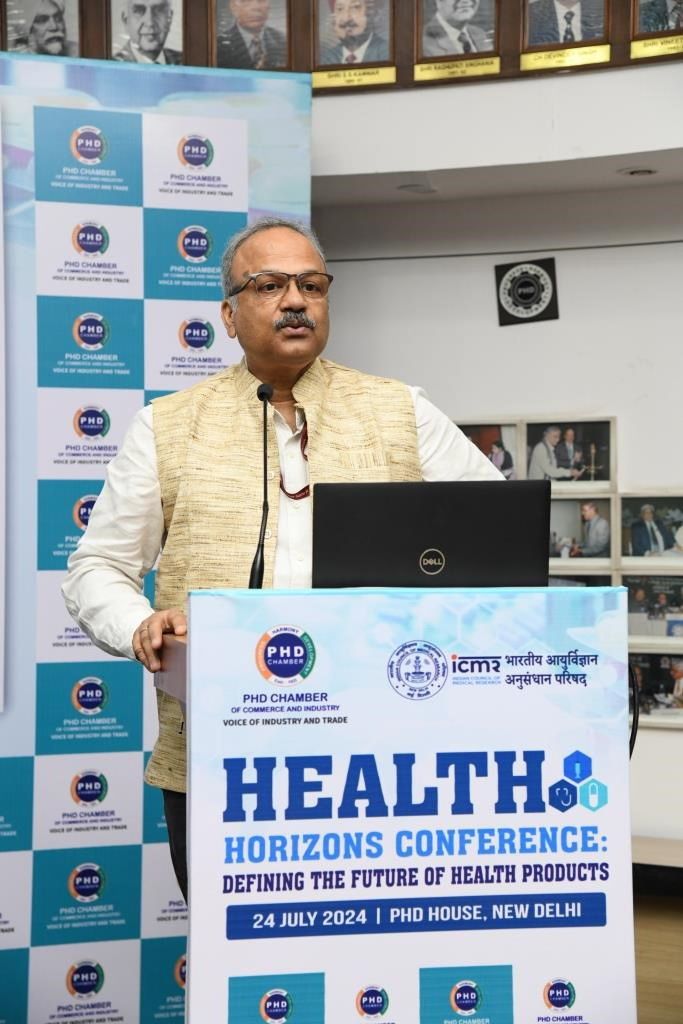
India's Medical Devices Industry Set to Grow Fivefold by 2030: DCGI
India's medical device industry is poised for substantial growth, with projections indicating a fivefold increase by 2030, according to Dr. Rajeev Singh Raghuvanshi, Drugs Controller General of India. Speaking at the PHDCCI Conference titled “Health Horizons: Defining the Future of Health Products,” Dr. Raghuvanshi highlighted the significant strides being made in the sector.
Currently, India imports 80% of its medical devices, with only 20% manufactured domestically. The government has implemented numerous incentives, schemes, and policy interventions to shift this balance. Dr. Raghuvanshi noted the licensing of over 3,200 manufacturing units and 10,000 import licenses within the past 18 months, indicating significant progress.
Dr. Raghuvanshi emphasized the need to reverse the import-manufacture ratio and achieve a net positive trade in medical devices. “For in vitro devices, we currently have about 280 manufacturing licenses and around 900 import licenses. Despite manufacturing many in vitro devices domestically, almost 100% of the reagents used are imported. This area holds significant business potential and opportunities,” he stated.
He also highlighted the benefits of regulation, including quality monitoring and international acceptance, which collectively boost industry growth. “Regulating an industry provides many advantages, the foremost being quality monitoring and standardization, which is critical in healthcare as it deals with people's lives. A regulated industry builds international confidence in the products manufactured, boosting growth. Projections indicate that by 2030, the industry could grow to about $50 billion, which is five times its current size,” Dr. Raghuvanshi remarked.
Drawing from his extensive experience in the pharmaceutical sector, Dr. Raghuvanshi warned against compromising quality for profitability. He highlighted unethical practices and emphasized the need for industry-wide commitment to high ethical and quality standards, given the healthcare sector's critical impact on human lives.
Dr. Madhur Gupta, Technical Officer at the World Health Organisation, echoed the need for India to develop in-house reagents for diagnostic kits within the next three to five years. Aligning with the Make in India and Atmanirbhar Bharat initiatives, this shift would not only reduce costs but also improve access. Dr. Gupta mentioned WHO's focus on creating strategic and regulatory pathways for multiplex diagnostic kits, which can diagnose multiple diseases from a single blood drop. She highlighted ongoing developments in this area through public sector enterprises and major science agencies like BIRAC and ICMR and called for a unified approach to strengthen diagnostic schemes in collaboration with Indian states.
Mr. Srinivasa Reddy, Senior Vice President - Operations, QRA, and Government Affairs at S S Innovation, discussed the Union Health Ministry's interim Budget for 2024-2025, which has seen a 12.59% increase, allocating Rs 90,658.63 crore. He noted significant allocations for health and family welfare, AB PM-JAY, and the National Health Mission. Mr. Reddy highlighted the reduction in import dependency in the Indian medical devices sector to 70-80% from over 90% in 2015, despite a rise in high-end medical device imports.
He stressed the need to strengthen the "Make in India" program by opening PLI for advanced medical devices, correcting duty structures, and enhancing support for local manufacturing. He also underscored the importance of a standardized nomenclature for medical devices to ensure patient safety and regulatory compliance.